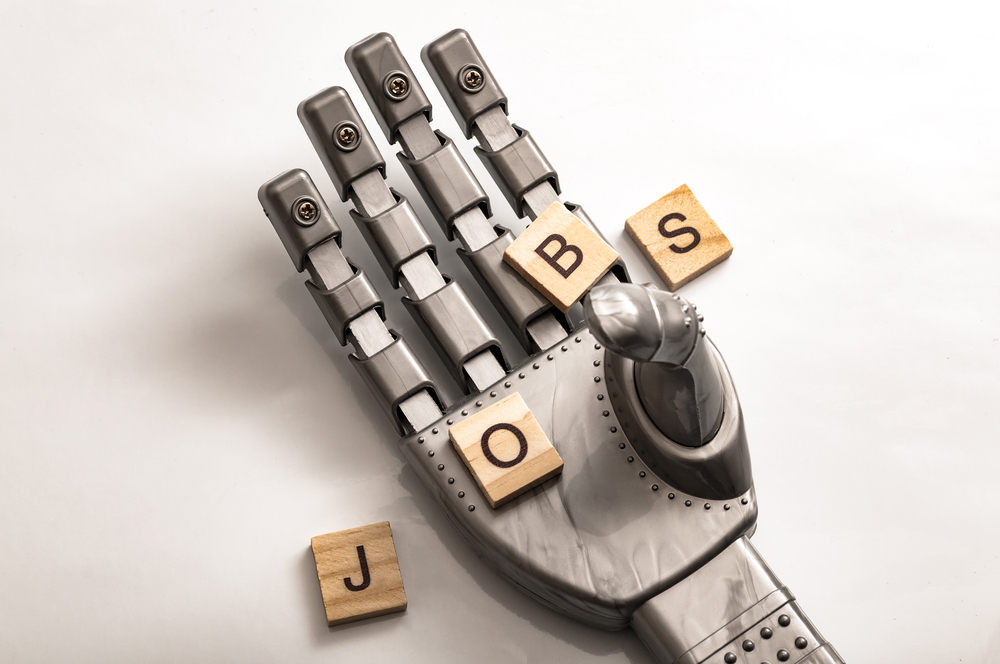Technology can be seen as both a blessing and a curse. When the coronavirus pandemic struck, businesses and organizations were quick to implement work-from-home technologies to keep workers on the job and working safely. As the “new normal” of remote work and social distancing continues to dominate the headlines, it makes us wonder: Should we be afraid of the machines again?
A new study by CareerAddict.com showcases the possible implications of job automation, with 1 in 3 people saying their jobs could be replaced by machines in the future. Interestingly, part-time workers are more likely to believe their jobs could be automated (43%) compared with those in full-time roles (30%).
Over 1,000 people were surveyed at the beginning of 2020 to gain insight into the future of work. Respondents shared their views on automation, work/life balance, and reskilling in the context of the future workplace.
Here are additional key findings from CareerAddict’s “The Future of Work” study:
- 3 in 5 said that artificial intelligence (AI) and automation will positively impact their work performance.
- 93% of respondents are open to reskilling and lifelong learning.
- 75% of those surveyed believe automation will improve work/life balance.
- 3 in 4 believe a 6-hour workday will make them more productive.
- On average, respondents said they would give up 8.8% of their salary for reduced working hours.
“The ‘future of work’ has been firmly propelled closer to the present due to COVID-19, with health and hygiene standing as an obstacle for most workplaces today,” says Christopher Thoma, Project Manager of CareerAddict. “Our insights show how remote work and technology can play a critical role in how businesses evolve, in order to increase productivity moving forward.”
The survey used the “Perceived Readiness for the Future of Work” index to investigate how different demographics meet the requirements for the future of work through their existing skills. Overall, the respondents’ index score was 68/100, with Millennials scoring the highest compared with other age groups (70/100).
Main index findings included:
- Women score higher in leadership and emotional intelligence.
- Men score higher in technological skills.
- Gen Zs score higher in programming.
- Gen Xers score higher in complex problem-solving.
- Baby Boomers score higher in emotional intelligence.
Among other demographic categories, those who classified themselves as non-tech-savvy and those who are unwilling to reskill scored the lowest in the perceived readiness index. These findings suggest that adaptability and tech-savviness greatly affect an individual’s readiness for the future workplace.
The Future of Work: Types of Employment
Technology will change the type of employment offered in the future. According to the study, respondents predict an increase in the number of people working in the gig economy or as freelancers. These findings reveal people’s desire to work independently without being bound to a contract.
When the candidate-driven market was in full swing, full-time employees were dropping out of “normal” 9-to-5 jobs to become their own bosses in the gig economy. While gig work had many pros, one of the major drawbacks was the lack of security. Gig workers often site the lack of access to affordable health care and the constant need to hunt down invoices in order to collect payment as some of the cons to working in the gig economy.
When the pandemic hit, many gig workers were also afraid they would be left behind as the federal government started to put laws in place to protect workers, but fortunately, gig and freelance workers were recognized and included in some of the relief packages. In order for this type of employment to truly work in the future, there will need to be additional changes to laws and regulations to keep these workers safe and protected.
The Future of Work: Business
Technology will also change the way businesses operate in the future. Some respondents in the study predict there will be higher levels of unemployment because jobs that have traditionally been performed by humans will be automated, leaving lower-skilled workers without a job.
The CareerAddict study adds that “technology will be indispensable to our work to the extent that businesses will be dependent on automation, subsequently causing certain jobs to die out and new ones to emerge.”
“By 2030, business practices are also likely to be more sustainable,” the study says. “Having observed the negative effects of environmental ignorance, people seem to put sustainable practices as a top priority for businesses of the future.”
While technology may cause some roles to become obsolete, when turning to more environmentally friendly business practices, these new endeavors will give lower-skilled workers an opportunity to upskill and reenter the workforce to meet the staffing demands technology will require.
The Future of Work: HR
According to the study, respondents wish to see on-the-job reskilling and trainings offered by HR teams to ensure employees are capable of handling new technologies and that businesses can utilize the latest tools available.
Furthermore, respondents also predict a preference for well-rounded and versatile employees who can work well with technology, as well as within teams. Finally, higher turnover rates are also predicted because technology will reduce the need to travel while also giving employees the ability to learn new skills anywhere they want.
The Future Is Here
While the CareerAddict study was conducted before the pandemic hit, a lot of the findings are echoing what we’ve learned from sheltering in place: The future of work is already here, and we weren’t prepared. HR and talent acquisition pros must keep in mind the role technology will continue to play as we adapt to the “new normal.”
The post The Fear Is Back: One-Third of Workers Think Robots Will Steal Their Jobs appeared first on HR Daily Advisor.
